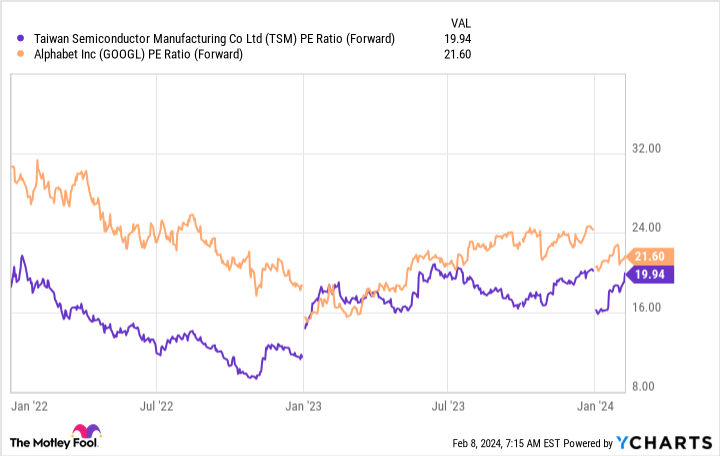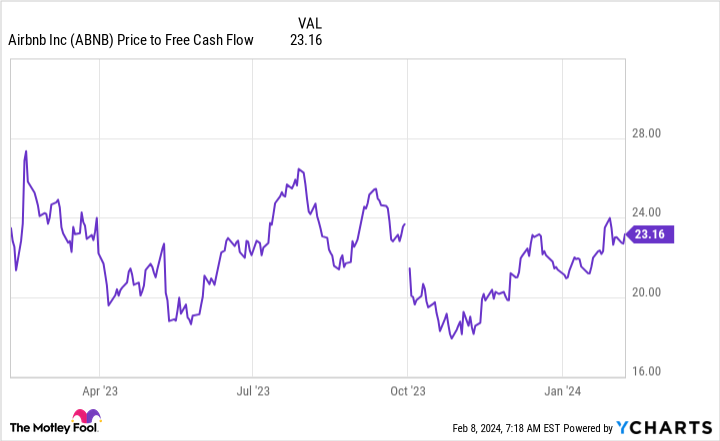3 Top Artificial Intelligence Stocks to Buy in February – The Motley Fool
Founded in 1993, The Motley Fool is a financial services company dedicated to making the world smarter, happier, and richer. The Motley Fool reaches millions of people every month through our premium investing solutions, free guidance and market analysis on Fool.com, top-rated podcasts, and non-profit The Motley Fool Foundation.
Founded in 1993, The Motley Fool is a financial services company dedicated to making the world smarter, happier, and richer. The Motley Fool reaches millions of people every month through our premium investing solutions, free guidance and market analysis on Fool.com, top-rated podcasts, and non-profit The Motley Fool Foundation.
You’re reading a free article with opinions that may differ from The Motley Fool’s Premium Investing Services. Become a Motley Fool member today to get instant access to our top analyst recommendations, in-depth research, investing resources, and more. Learn More
AI has propelled many companies higher, but these three have lagged.
Artificial intelligence (AI) investing is a trend that’s not going away anytime soon. AI has presented itself as a way to assist us in everything we do, making us more efficient. Greater efficiencies lead to higher profits for businesses, so management teams are pursuing as many ways as possible to implement AI in their processes.
While many companies benefit from AI adoption, not all are great buys due to extreme optimism. But, three you can scoop up for a reasonable price are Alphabet (GOOG 0.23%) (GOOGL 0.23%), Taiwan Semiconductor (TSM -1.25%), and Airbnb (ABNB -0.41%).
Alphabet, formerly known as Google, has been a large user and developer of AI technologies. Its generative AI platform, Gemini, has allowed it to improve search capabilities, as it can answer more complex questions. It also has rolled out an image-to-search function on its Android operating system, available on phones like the Samsung Galaxy S24.
But perhaps the greatest benefit to Alphabet is its Google Cloud division. Cloud computing is a massive benefactor in all things AI, as these servers can be used to gather data, store it, process it, and then use it to train an AI model. This division is used by 70% of generative AI unicorns (private companies worth at least $1 billion) and saw revenue growth of 26% in the fourth quarter.
Taiwan Semiconductor is more of a hardware play, as it makes the microchips that go into many devices used in AI. Because it is a contract manufacturer, it takes designs from companies like Apple, Nvidia, and AMD and makes them. TSMC can make the world’s best and most powerful chips with 3 nanometer (nm) conductor spacing. However, it’s also developing even smaller chips with traces 2 nm apart, due to launch in 2025.
While TSMC doesn’t recognize much revenue from AI chips yet, it’s quickly growing. CEO C.C. Wei stated that AI chips’ compound annual growth rate is about 50%. By 2027, he expects total AI chip revenue to be in the high teens. Taiwan Semiconductor benefits from the rise of all technologies that require microchips, and AI is no exception.
The odd company out of this list is Airbnb. Airbnb is a travel platform that helps clients book alternative stays and experiences, making it not seem like an AI company. However, Airbnb uses AI on its platform for multiple purposes.
Airbnb gained a reputation for facilitating parties early on, which tarnished its brand. Now, Airbnb deploys AI to use several factors to determine if a location is being booked for a party and denies the request if it appears so.
It also recently purchased GamePlanner.AI, a company founded by Adam Cheyer and Siamak Hodjat, two people responsible for creating Apple‘s Siri voice assistant and Samsung’s Bixby.
While all three companies are involved in AI, what makes them strong buys now?
According to FactSet, the S&P 500 currently has a forward price-to-earnings (P/E) ratio of 20. This figure is determined by summing up the earnings of every company in the index and dividing it by the total market cap. I’ll use this as a baseline to value each company.
Alphabet and Taiwan Semiconductor each trade around this range.
TSM PE Ratio (Forward) data by YCharts
Essentially, the market says that both companies are average compared to every stock in the index. However, with how critical Alphabet and Taiwan Semiconductor are in the AI space, this average valuation makes both seem extremely cheap.
Airbnb is a bit harder to value, as it had a one-time tax benefit in Q3 that skewed its earnings. So, instead of earnings, I’ll use its free cash flow to value the company.
Airbnb trades at 23 times free cash flow, a typical valuation over the past year.
ABNB Price to Free Cash Flow data by YCharts
Free cash flow can be vastly different for each company, so comparing it to the S&P 500 isn’t as easy. But 23 times free cash flow for a company growing as quickly as Airbnb is a fantastic price, making it a solid buy. For reference, Alphabet trades for 27 times free cash flow, and that stock is already cheap.
All three stocks make for great buys in February, and AI will remain a large theme for each company for quite a while.
Suzanne Frey, an executive at Alphabet, is a member of The Motley Fool’s board of directors. Keithen Drury has positions in Airbnb, Alphabet, and Taiwan Semiconductor Manufacturing. The Motley Fool has positions in and recommends Advanced Micro Devices, Airbnb, Alphabet, Apple, FactSet Research Systems, Nvidia, and Taiwan Semiconductor Manufacturing. The Motley Fool has a disclosure policy.
Invest better with The Motley Fool. Get stock recommendations, portfolio guidance, and more from The Motley Fool’s premium services.
Making the world smarter, happier, and richer.
© 1995 – 2024 The Motley Fool. All rights reserved.
Market data powered by Xignite and Polygon.io.
